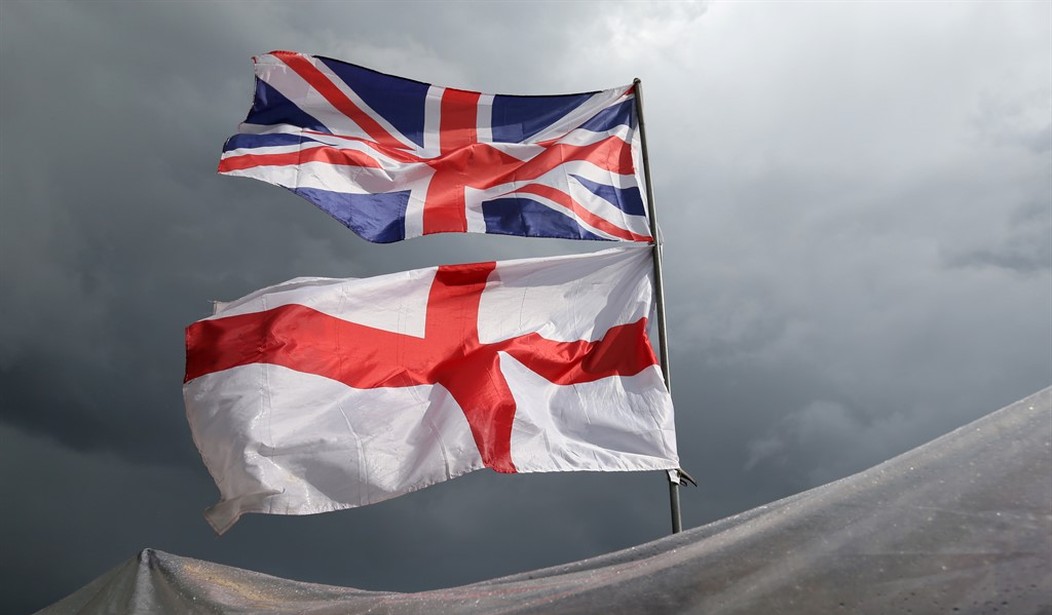There are around four million Muslims in Britain, and with that rapidly growing population come societal changes. Oxford’s Magdalen College has in the past celebrated St. George’s Day on April 23 with a ceremonial dinner; this year, however, St. George’s Day plans have been deep-sixed, and Magdalen will instead host a formal dinner to mark the end of Ramadan. In Britain’s celebration of diversity, there is room for only the one observance, not both.
GB News reported Wednesday that “an annual St George’s Day dinner has been cancelled by an Oxford college.” Magdalen College “usually holds an annual banquet to mark the day of the English saint, with students and academics dining together to enjoy a traditional feast.” It’s understandable that the college would take this step: the patron saint of England has been out of favor for years now.
As far back as 2006, the UK’s Daily Mail reported that “the Church of England is considering rejecting England’s patron saint St George on the grounds that his image is too warlike and may offend Muslims.” St. George didn’t end up getting deep-sixed altogether, but he was severely deemphasized, and not just by the Church of England. In May 2013, the Telegraph noted that in the town of Radstock, Somerset, “a local council decided against flying the flag of St George after concerns were raised that it would offend the town’s 16 Muslim residents.” In April 2016, according to the Express, the Bristol City Council “refused to host St George’s Day celebrations because the area is ‘too multicultural.’”
Stories of this kind are all too easy to find. According to Breitbart, on April 23, 2020, Britain’s Secretary of State for the Department of Health and Social Care, Matt Hancock, “thanked Muslims for their Ramadan ‘sacrifice’ on St George’s Day, but made no mention of the English national day itself.” Hancock added: “I want to say to all British Muslims, thank you for staying at home. I know how important the daily Iftar is, how important communal prayer is at night, and how important the Eid festival is.” Nothing about how important St. George’s Day was, because it wasn’t.
Leftists, meanwhile, have been busy crowing that St. George wasn’t really English at all. Breitbart reported in April 2022 that “Leftists in Britain celebrated St George’s Day on Saturday with their annual issuing of false claims that the Roman soldier of Cappadocian Greek ethnicity was, variously, ‘Turkish’, ‘Arab’, and ‘a migrant worker’ in an effort to ‘own’ English patriots.”
Magdalen College found an even better way to “own” English patriots this year. GB News stated that “the Oxford college will hold a formal dinner for Eid on April 23 – despite the annual festival actually taking place two days earlier.” Eid al-Fitr marks the end of the monthlong Ramadan cycle of fasting all day and gorging all night. It’s a peculiar insult to those who value England’s heritage that St. George is being ignored on his own feast day, and Eid al-Fitr celebrated on that day instead, despite actually falling this year on April 21.
What’s more, “in the four years prior to the pandemic a St George’s Day feast was held, according to the Telegraph.” Magdalen College officials deny that these St. George’s Day dinners ever took place. A Magdalen spokesman insisted: “There is no College tradition of a formal dinner for St George’s Day.” This may, however, have been bending the truth more than a little. The Telegraph “cited proof of such events, including a formal invite in 2018 from the then college vice-president for lecturers to ‘celebrate St George’s Day’ with ‘a formal hall and high table at 7.30pm with a special English menu.’” The invitation said that along with the “English menu,” which given the state of English cuisine was unlikely to arouse much enthusiasm, there would be “Grace and English Music by the Clerks followed by an oration.”
Related: The Riots in France Contain an Important Lesson for Americans
This year, Magdalen has instead invited Muslims to “celebrate Eid with a festive dinner in the Hall.” There will be no “English menu,” of course: “the meal will follow Muslim customs: the meat dish will be halal and no alcohol will be served.” The Magdalen spokesman, however, maintained that the treatment of Muslims and Christians was even-handed: “Sunday 23 April is the first day of the new term. We are happy to support the request made by Muslim students in the College to hold a dinner to mark Eid on that day. On the same day, we will be flying both the St George’s and College flags to celebrate St George’s Day and will be hosting the University sermon for St Mark’s Day.”
He also said that “the College celebrates all the major Christian festivals and saints’ days.” That’s wonderful, but there are still lingering questions about what happened to the St. George’s Day dinner and why a special Eid dinner is being held two days late. Britain is not what it was, and it will be even less of it in the near future.










Join the conversation as a VIP Member